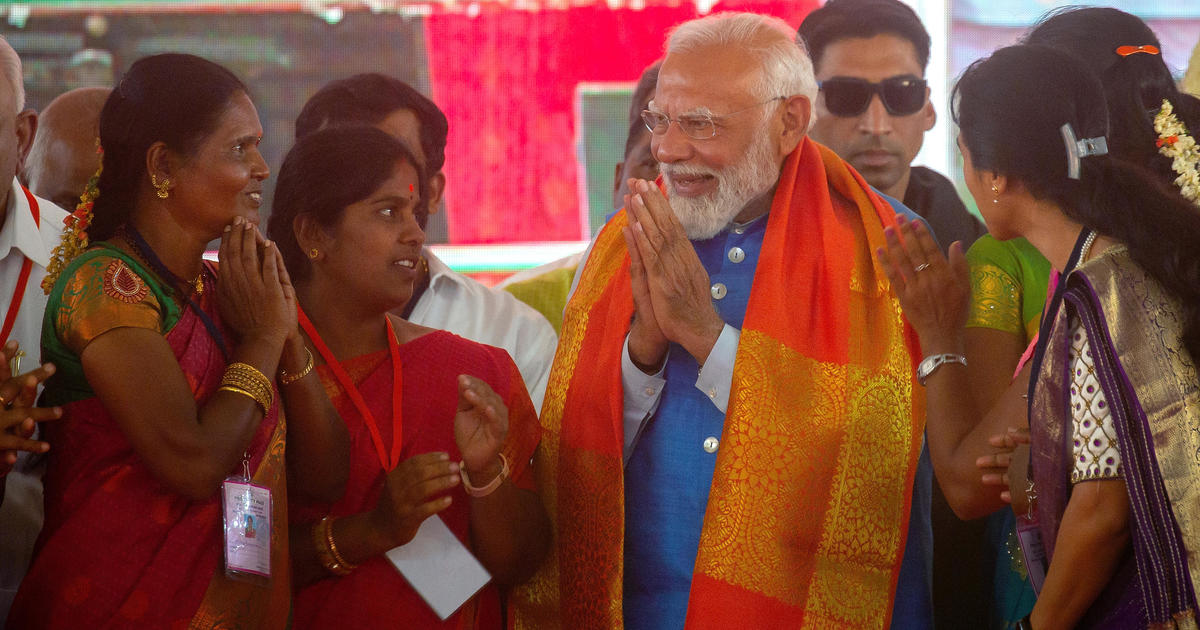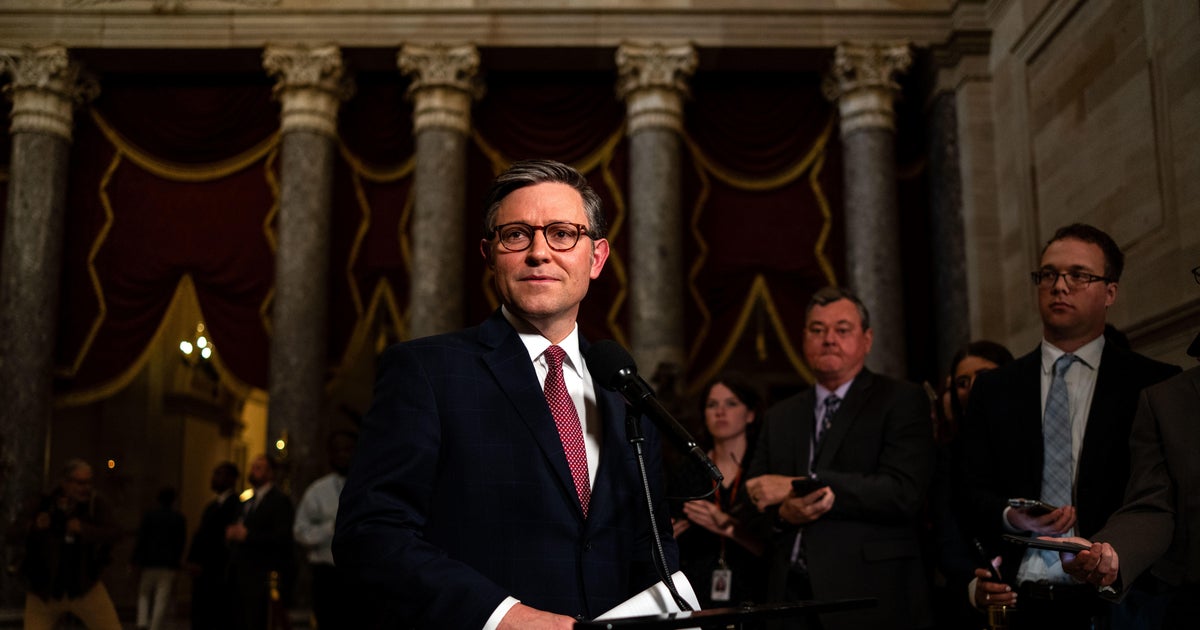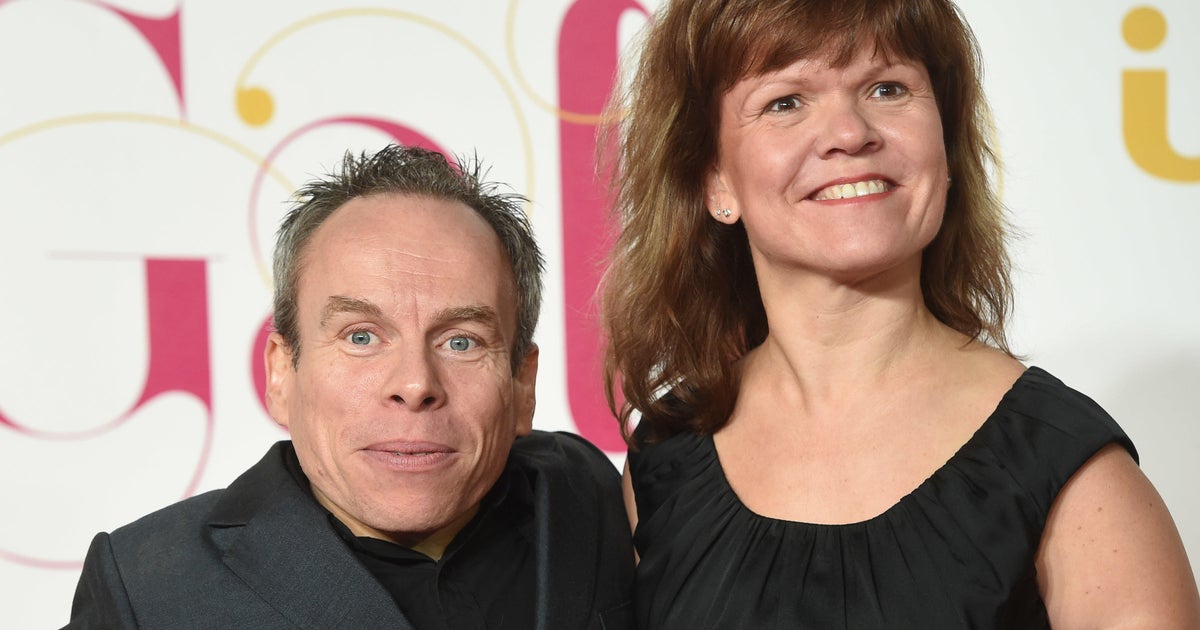U.K. election kicks off, and it could resolve the Brexit battle. Or not.
London — Britons headed to polling stations across the U.K. on Thursday in an election that could finally determine a winner in the bitter, drawn-out Brexit battle. Voters were set to choose all 650 members of the House of Commons.
Any party that wins an outright majority of those seats can form the next British government, and current Prime Minister Boris Johnson and his Conservative party have vowed to pull the U.K. out of the European Union by the end of January if they can hold onto power.
As CBS News correspondent Mark Phillips reports, it's the U.K.'s third general election in less than five years, but analysts say it could prove the most important vote in decades.
There is a lot more at stake than just who gets to govern the country for the next few years. Phillips says it's about more, even, than whether the U.K. stays in or gets out of the EU; this election is about what kind of country the United Kingdom will be going forward.
For Prime Minister Johnson, though, this election is about getting the parliamentary majority he needs. Previous attempts to get his draft of an EU divorce deal through Parliament were blocked by lawmakers, from both opposition parties and his own.
So Johnson wants to force his version of Brexit through. In the last days of the campaign he actually drove a front-end loader through a wall of Styrofoam bricks with the word "Brexit" emblazoned across it, a visual aid to make his point.
But the prime minister has been widely criticized for avoiding public scrutiny during the campaign. First he refused to even look at a photo of a boy forced to rest on a hospital floor, as a reporter pushed him for answers about his party's handling of the National Health Service. Then he refused to participate in a pre-election interview with the BBC's veteran political correspondent — a long-standing tradition in British politics.
On Wednesday, just a day before the vote, Johnson was accused of dodging another attempted live television interview by ducking into a walk-in refrigerator during a campaign stop.
Johnson's main opposition comes from the Labour party's Jeremy Corbyn, who says he'd negotiate yet another divorce deal with the EU and then hold a new public referendum on whether the U.K. should accept his draft, or scrap Brexit entirely and remain a member of the European Union.
Corbyn has refused to say whether he, himself, would vote to stay or go. He has tried to change the focus of this election from Brexit, to fighting Britain's social and economic inequalities. As one way of doing that, he says he would nationalize many of Britain's large public industries — a radical proposal that many in the British public may not be ready to embrace.
It has been a nasty campaign. There are no negative TV ads clouding the airwaves here, but the internet, which isn't regulated in the same way, has been full of subtle and not-so-subtle targeted ads, many making dubious claims and coming from anonymous sources.
The effect of those ads isn't yet clear but, counting the referendum itself, Thursday's will be the fourth major vote in the U.K. in five years, and it all seems to be testing voters' endurance.
One woman going to the polls seemed to sum up the public's frustration, declaring that she intended to vote, "for the least worst of the bunch."
The waters have been further muddied by several smaller parties, which could split the vote. There have been aggressive calls for tactical voting; urging voters to cast ballots for the candidate who has the best chance of beating whoever they dislike most, rather than the candidate they actually like the most.
Opinion polls in the days leading up to Thursday's vote showed the lead Johnson has enjoyed for weeks narrowing.
If neither his Conservatives nor the Labour party manage to secure a solid majority of seats, there would likely be wrangling with the smaller parties to try and form a coalition government.
There's no telling what the implications of that process could be for Brexit, and no telling as Brits headed to the polls whether this third election might actually solve anything.
The first official, preliminary vote counts were expected to come in by around 10 p.m. local time, or 5 p.m. on the U.S. East Coast.



